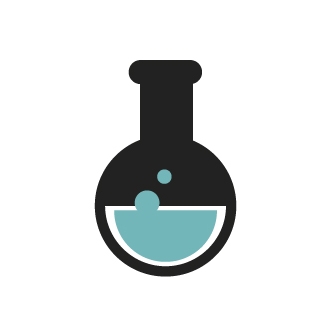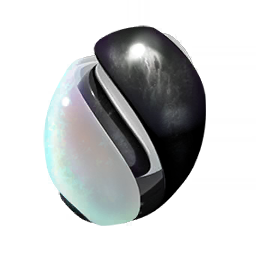- cross-posted to:
- technology@lemmy.world
- cross-posted to:
- technology@lemmy.world
A California-based biotechnology startup has officially launched the world’s first commercially available butter made entirely from carbon dioxide, hydrogen, and oxygen, eliminating the need for traditional agriculture or animal farming. Savor, backed by Microsoft co-founder Bill Gates through his Breakthrough Energy Ventures fund, announced the commercial release of its animal- and plant-free butter after three years of development.
The revolutionary product uses a proprietary thermochemical process that transforms carbon dioxide captured from the air, hydrogen from water, and methane into fat molecules chemically identical to those found in dairy butter. According to the company, the process creates fatty acids by heating these gases under controlled temperature and pressure conditions, then combining them with glycerol to form triglycerides.
If it’s not dairy, is this not margarine rather than butter?
Also, a
proprietary process
Ugh, capitalism
I mean, it was backed by Bill Gates, mr proprietary himself
Gates
just like he did the vaccines/.(not for himself but for the pharma companies.)
Removed by mod
was
The basic process is not proprietary. It’s just the Fischer-Tropsch process. It’s been in use since WWII. It produces hydrocarbon chains of arbitrary length from whatever hydrocarbon feedstock you can provide.
Dietary fats are just certain short-chained hydrocarbons accompanied by certain flavorful compounds.
The “proprietary” part is what chemicals they add to the synthesized fat to make it sufficiently comparable to butter.
The Nazis used the same basic process to produce “butter” from coal feedstocks about 90 years ago. This is nothing new.
but also we already have margarine that tastes close enough to butter, so this thing is at best “hey guys we made margerine taste slightly more like butter”
the brand i’ve used which is very butter-like just adds some sort of field bean extract and some orange food colouring lmao
That is absolutely wild…
It is neither plant or animal based, the chemical composition is claimed to be like butter, so it is even less margarine than it is butter. Margarine is hardened plant oil or technically it can also be made from animal fat. So this is neither margarine or butter, it is synthetic butter, since it synthesized chemically, rather than made by the traditional more natural method.
But yes capitalism indeed. Why try to help the world if you can’t make money on it? 🙄
Yes, this has nothing to do with butter.
Don’t say the m-word, it makes milk boys nervous
proprietary process
Where the carbon is replaced with butter.
This isn’t new technology. This is the Fischer-Tropsch process, which cracks and/or lengthens hydrocarbon chains to produce molecules of the specifically desired length. The Germans used this same process almost a century ago. They cracked coal to produce lighter chemicals (primarily methane) then re-lengthened those methane chains to produce a variety of products, ranging from fuels, lubricants, and yes: edible “butter”.
This article repackages the same technology the Nazis used to feed their U-boat crews in WWII.
You frame it like it’s a bad thing but even if the process is mostly the same isn’t that good? Also we can clearly improve on a 100 year old technology even if it’s “solved”.
My primary issue is that the entire article is somewhat deceitful. They use phrases like “never seen before”, “unprecedented”, “pioneering”, but those characteristics do not really apply to the +90-year-old technology. The only significant part of the “process” that is different from what was uses in WWII is the specific flavor packs they add to the product.
Their deceitful comments about the technology have me questioning the veracity of the rest of their claims.
Don’t get me wrong: I think that Fischer-Tropsch is one of a few important technologies we need to be adopting. The reason we need to adopt it is because it is incredibly energy intensive, but not necessarily time critical. It can provide a profitable sink for excess solar energy production during long summer days, to produce hydrocarbon fuels for the transportation and aviation industries, yet switch offline overnight, overwinter, and during inclement weather, when solar can’t meet demand.
But we just don’t consume enough butter for this application to be useful to solar generation.
The Air Force experimented with Fischer-Tropsch “SynFuels” about 15 years ago. They actually certified most/all military aircraft to burn SynFuels, to lessen our military’s reliance on foreign oil.
If this process can tune how kling the R chains get, can’t we use it as a viable petrochemical substitute? To at least make various feedstocks, albeit being energy intensive?
We don’t need to make butter now - use it to fill niche applications where very precise chain lengths are needed (for cost/profits) then branch into other premium/environment sensitive applications?
can’t we use it as a
viablepetrochemical substitute?Yes, and no. It can be technically viable, yes. That was the primary objective of the Germans in WWII, and the USAF recently: to replace lost oil reserves.
But it is very unlikely to ever be economically viable. Oil producers can easily underbid Fischer-Tropsch production.
Most of agriculture is also rarely economically viable without strong subsidies. Iirc sea oil drilling is also only made viable after strong initial subsidies.
Very few strategically important industries are economically viable without strong subsidies or regulations to start/protect them.
Catalytic converters and switch away from CFCs would have never taken off without regulations for example.
You’re right, but I am curious whether they’ll be able to pursue this chemically through non-biological feedstocks. Most existing use of Fischer-Tropsch turns fossil fuels (coal, natural gas) into other types of hydrocarbons.
And they’re specifically targeting output of fatty acids, using fractional distillation to separate each fatty acid, and then forming triglycerides according to the characteristics they’re looking for.
It all sounds very energy intensive and inefficient, so I’m not sure how they expect to make money doing this, but if they can dial in which fatty acids to assemble into triglycerides I can see this being a good substitute for palm oil and coconut oil, and maybe other vegan substitutes for animal fats like tallow and lard.
Once we kill the Earth, this will be how food is manufactured. I am now going to finish my box of Soylent Green.
I’m not sure why people are so puritanical about this. I think Beyond Burgers and Soylent are great.
In case you don’t know, https://en.m.wikipedia.org/wiki/Soylent_Green
Soylent very much had that in mind when naming their product. It’s meant to serve the same purpose as the titular substance: a wholly complete food source. Also constantly referencing Soylent Green to denigrate Soylent was precisely what I was referring to lol
deleted by creator
Yeah but you referenced Soylent when the original comment was about Soylent Green (which, as you tacitly acknowledge, came first) so you kind of got the cause and effect backwards
well he’s not arguing against eating people, he’s arguing against a distate for the concept of food replacements. not every post-apocalyptic replacement has to be made from people either
I don’t think the person at the beginning of the thread was saying all food would be made from people. I think they were referencing a fictional product for irony and that the person who responded didn’t catch, and the responding person said what they said to follow up and anyone with the will to read can interpret for themselves…

Had a Beyond burger once. Once. I can’t put it words what I didn’t like, but it was revolting.
I like Beyond Burger more than hamburger but not more than black bean burgers or ground pork. I just dislike ground beef though. That Beyond Burger is made from isolated pea protein, flavoring and wishes. It does have a distinct flavor, and is a highly processed food.
I didnt care about the taste, but woooweee, the farts that it made were thunderous!
I think those burgers are made of compressed farts.
Funny because for me, the Beyond burger taste better than many joint patties, but the price is prohibitively expensive, so I don’t buy them that often (or eat burgers that much for that matter)
Shout out to the kirkland brand as well, damn good patties.
Enjoy your heavily processed food full of saturated fat and more than 4x the sodium of beef burgers.
And a touch of GMO goodness with your soylent.Brother do you know what a GMO is?
Do you know what obvious sarcasm is?
Not that obvious, it seems
I assumed “GMO goodness” was more than low bar enough.
How on earth is he going to process the scientific explanation in the article?sukhmel probably assumed you meant that you were parodying someone who hates artificial foods and GMOs and did not actually hate them yourself
Do you? Because you sound like some of the arguments I’ve heard from conservatives/cowbrains when I’ve talked about not eating meat and trying substitutes.
Like it would take very little effort to make this sound like part of an Alex Jones rant, talk about the nutrition aspect and transition into a lazy ad pivot and you’re basically there.
TF are you going on about conservatives, Alex Jones and whatever?
That’s some rambling associated with inhabitants of the US banana republic and their fanatic fixation on making everything about them and their 2 sides of the Uniparty.
“Someone in the world doesn’t like GMO’s, that’s also side B’s stance and automatically bad!”
“What, Side B says the sun comes up in the east? If they say it it must be in the west!”Simplistic ridiculous campist thinking.
Really I hope both of your camps burn that joke of a country to the ground and disappear.
Bye now
I’m not sure if that’s a bad thing. Current food sector is rotten to the core. For most, food is entertainment that is incredibly inefficient at what it does and causes incredible ethical harms that we choose to conciously ignore.
What is wrong with entertainment, though? Taste is one of our senses, like hearing or seeing, having food that tastes good is not inefficient , it’s lovely - I think having a good palate and appreciation for lots of flavors is a positive good in a life.
Removed by mod
Why are you conflating animal foods and pleasure in eating? My vegan kid is a foodie, a good cook and a person who gets a lot of sensory enjoyment out of the texture and flavors of food. It’s important to her.
I don’t think drmoose would consider non–animal-based food entertainment as inefficient as e.g. butter
That’s a very shallow take. Food taste good thus must be good? You do not dare to explore this any deeper?
? I grow vegetables and fruit, make healthy meals, mostly homemade. Sourdough bread, fermented drinks with odds and ends to divert waste. Why do people think good food doesn’t taste good? Good food tastes great.
No one’s argueing that food doesn’t taste good but there’s more to food than just taste and kinda sad that you don’t see it.
I am so confused. Why do you think I said taste is the only thing that matters about food? I did not say that. I said that it does matter, and should not be devalued, would never argue that it’s the only thing that matters, and never said that.
I think you genuinely have a reading comprehension disability.
Current food sector is rotten to the core. For most, food is entertainment that is incredibly inefficient at what it does and causes incredible ethical harms that we choose to conciously ignore.
and you reply with “but food tastes good” — duuuuuh but why would that matter to anything? like seriously dude, spend some time with yourself.
“Soylent Green is people!”
Space Butter
This, but unironically.
There’s plenty of objects out there made of CHONPS.
If we don’t kill ourselves first, at some point we’ll eat the Kuiper Belt and Oort cloud.
Bring me the corpse starch
…carbon dioxide, hydrogen, and oxygen…
Pretty sure that is what regular butter is made out of too.
Yes, they aren’t trying to make an alternative butter substitute as I understand it. They’re trying to make real butter via a purely chemically synthetic process.
How is this not just crisco, hydrogenated fat? Butter seems like it has more going on, traces of milk proteins & sugars that give it flavor.
Hydrogenated vegetable oils still start with vegetable oil, which have to be extracted from farmed crops (mostly soybeans).
This is a process that skips living feedstock from biological organisms and assembled the fatty acids directly from methane, water, and carbon dioxide. No photosynthesis, no cellular metabolism, nothing like that.
Both of those things are basically C, H, and O.
So are you
This isn’t butter, this is one type of butter fat. It’s missing the milk solids, proteins, and other molecules that contribute to butter’s smell and taste.
I can’t believe it’s not butter
I shall add some potassium and market it as buttOCK
Maybe they add some of those under “natural flavors”?
Then it’s no longer vegan.
The article doesn’t say it is vegan. And despite their “no plants, no animals, no oils” claim, the added “natural flavour and colour” needs to come from somewhere. Generally these are derived from plants, animals or oils.
Overall an interesting breakthrough, but the contradictions make me ask some questions.
deleted by creator
I don’t get it, what do you mean?
I don’t either. Carbon based butter sounds like a healthier alternative to traditional butter.
I’m having a hard time imagining that tho
If it is exactly the same compounds, how should it be more or less healthy?
less harmful errors from the animal industry like residue antibiotics and hormones.
Less lactose and fats I imagine
If it is exactly the same compounds, it isn’t less of something. If it is less of something it won’t taste like butter.
deleted by creator
It doesn’t, I have yet to taste any cheese alternatives that can substitute parmigiano reggiano and pecorino romano for my Carbonara or salads, likewise with red meat and butter there’s really aren’t any alternatives at the moment (haven’t tried labgrown meat yet, that might be an actual alternative). I have tried almost all commercially available alternatives in danish grocery stores and none do what they promise.
Just to be clear, I don’t hate on alternatives. I hate products that don’t live up to their promise. Plus I try to avoid heavily processed products and that includes many alternatives.
I bet that price is the main issue. The reason all of these startups fall into oblivion is that price is astronomical.
but also in this case we already have perfectly fucking fine margerine, if you splurge on slightly more expensive (which is still like half the fucking price of butter) stuff it’ll taste pretty damn close to butter so long as you’re not doing a side by side comparison.
I would like to see the LCA analysis on this one. I would not be surprised if this ends up using energy causing more damage than the damage that dairy farming methane and land conversion is doing.
I’d be very impressed if this somehow created more methane than cow farts.
Mostly comes out the other end. Burps mainly, the farts mostly contain poo
I would like to subscribe to Cow Facts
If the energy used to run the plant comes from burning natural gas, it very probably could.
I once saw a company that advertised “Bio-Diesel”. Destilled out of Maize alcohol on heat from burning lignite coal… The entire process is an ecological disaster and a sham worse than just using straight up mineral oil products.
EDIT: I am not saying that this would have to be the case here, but why it is so important to do an LCA. Comparing environmental effects of different possibilities is not trivial and sometimes what seems to be the obviously better choice turns out being worse.
California does have many natural gas power plants. And it’s plausible that this start-up is relying on the public grid to develope their butter. But it seems unlikely that people trying to create animal and plant free butter are doing it without considering the environment.
If the energy used to run the plant
But that’s not a problem with the process. That could be applied to anything.
Power source isn’t part of the equation unless the process can only be done in a location with a specific type of power source. Otherwise, you just compare the power amounts used between the two options, and multiply by something like the national average CO2 burden from all power.
The process requires high temperatures and pressures.
In refineries this is achieved by burning some of the gas for heating. When this plant is also heated with gas it definitely is part of the equation
Harness cow farts
Sound like coal butter, which existed in WW2 but was discontinued because of inefficiency.
And the most important question: how does it taste?
No the most important question is how much energy does it take?
[…] they take carbon dioxide from the air and hydrogen from water, […]
So direct air capture, instead of industrial waste CO2, good luck with that.
No the most important question is how much energy does it take?
It takes a lot, but not nearly enough.
The real problem with solar generation is seasonal variation. Think about the generation capacity we need during a 9-hour, overcast, winter day. Now, think about that same array under clear summer skies, when we are getting 15 hours of daylight.
It’s barely meeting demamd in winter, but it is producing 4-10 times as much power as we actually need in summer. Grid storage is the usual suggestion for mitigating the limitations of solar generation, but no amount of grid storage is feasible for leveling seasonal variations.
Energy-intensive Fischer-Tropsch technology could soak up that excess summer power production, and shit off for the winter, making it profitable to deploy those large solar arrays. But we don’t consume nearly enough butter to make this a viable approach at mitigating seasonal variation. To make it useful for promoting solar rollouts, we would need to be producing jet fuel, not butter.
If capitalism has taught me anything, it’s that it won’t be used like this. There is only one way the producers of this butter would tie production to excess solar capacity, and that is if it’s the most profitable. That would require that the cost of solar + storage + transport is cheaper than using another source of energy, on demand. And that’s even assuming there’s enough excess solar to run the whole thing, and the logistics don’t get in the way of maintaining the supply chain.
There is only one way the producers of this butter would tie production to excess solar capacity
The Fischer-Tropsch process can be uses to produce any hydrocarbon product. We don’t use enough butter for it to feasibly soak up excess solar generation in the summer.
But we do use enough jet fuel, diesel, and gasoline.
And that’s even assuming there’s enough excess solar to run the whole thing,
Thats not an assumption. That is the specific problem we need to overcome for solar to replace coal and nuclear. Already, we have summer, daytime generation rates going negative because we have not adequately adapted to the seasonal variation in solar. Those negative rates are massively hurting solar rollouts around the world.
We need massive, seasonal electrical loads to make solar profitable during spring/summer/autumn, so that we have sufficient generation capacity available through winter.
Storage is important for matching the daily generation curve to the daily demand curve, but we can’t hope to match seasonal variation. It would be easier to shift power across the equator than to build out enough storage to solve the seasonal variation problem.
If Bill Gates is involved we can be sure it’s to help humanity, and not to help capitalists and rich people to get richer.
He has a very good PR team because this man was also backing the former Monsanto company, with proprietary grains, supposed to help solve famine in the world, but causing poor farmers to be sued into bankruptcy and commit suicide. Oh and the grains also commit ‘suicide’ so if you are not sued because the wind flew proprietary grains to your field, you better have enough money to buy new grains from corporations every year.
So I’m sure anything he does can’t be bad. It’s all altruistic and for the good of humanity. Surely nothing proprietary there. All open source. For humanity.
Fuck Bill Gates.
He’s also on the Eipstein list.
“Tastes just like the real thing” is a sure sign that it is almost, but not quite, entirely unlike the real thing
Typically there are minor ‘impurities’ that make the ‘real’ thing taste different.
Vanillin, for example, is very easy to produce chemically, which is good, because growing and harvesting it naturally is very difficult, but it’s missing a lot of the compounds which add subtle yet important taste and smell to the natural stuff.That’s what I’m thinking. For example, there are milk proteins in butter that undergo the Maillard reaction to produce different flavors. Will this product have the same proteins?
Especially tea
I’m watching you, Dent
Margarine?
Sure, if you want to call a hydrocarbon like methane “carbon” I guess. Why not.
Failing to parse this one; could I ask what did I miss in the article?
they aren’t using pure carbon, but compounds. the title suggests otherwise
They focused on the CO2 and the hydrogen from the water, but the underlying feedstock for this synthetic hydrocarbon product is actually the Methane (from natural gas) that they quickly glossed over.
Even the blurb in the description contains all the reference you need.
I see the methane; but it comes right after ‘pulling carbon out of the air’. Still, appreciate being held to a standard I guess.
Anything but stop polluting…
We could cut our carbon emissions? NO, no! This is an opportunity for profits! We can use this to squeeze just that bit more money out of people and it sets us up nicely to replace real butter when the total collapse of the ecosystem means that real dairy becomes an impossible luxury.
So, how’s that work on bread made from sand coming along?
Don’t let perfect be the enemy of good.
But this is not good either.
why?
Replacing a large amount of agriculture, which produces a lot of emissions, could potentially cut emissions.
The last step in the process is being glossed over, where they mention the final ingredient is glycerol. Google says the primary ways we get glycerol is from plants, animals, or good ol oil. They specifically say this doesn’t use plant or animal products, so I’m left assuming this entire process hinges on ‘drill baby drill’
I just read an article about scientists researching how to darken parts of the the sun to fight climate change lol
We are past the point of runaway. Even if stopped all greenhouse gasses from being added today would still get hotter. We need solutions to allow us to survive that time.
I’m pretty sure the point is to reduce reliance on diary products and therefore livestock farming, a major source of global warming.




















